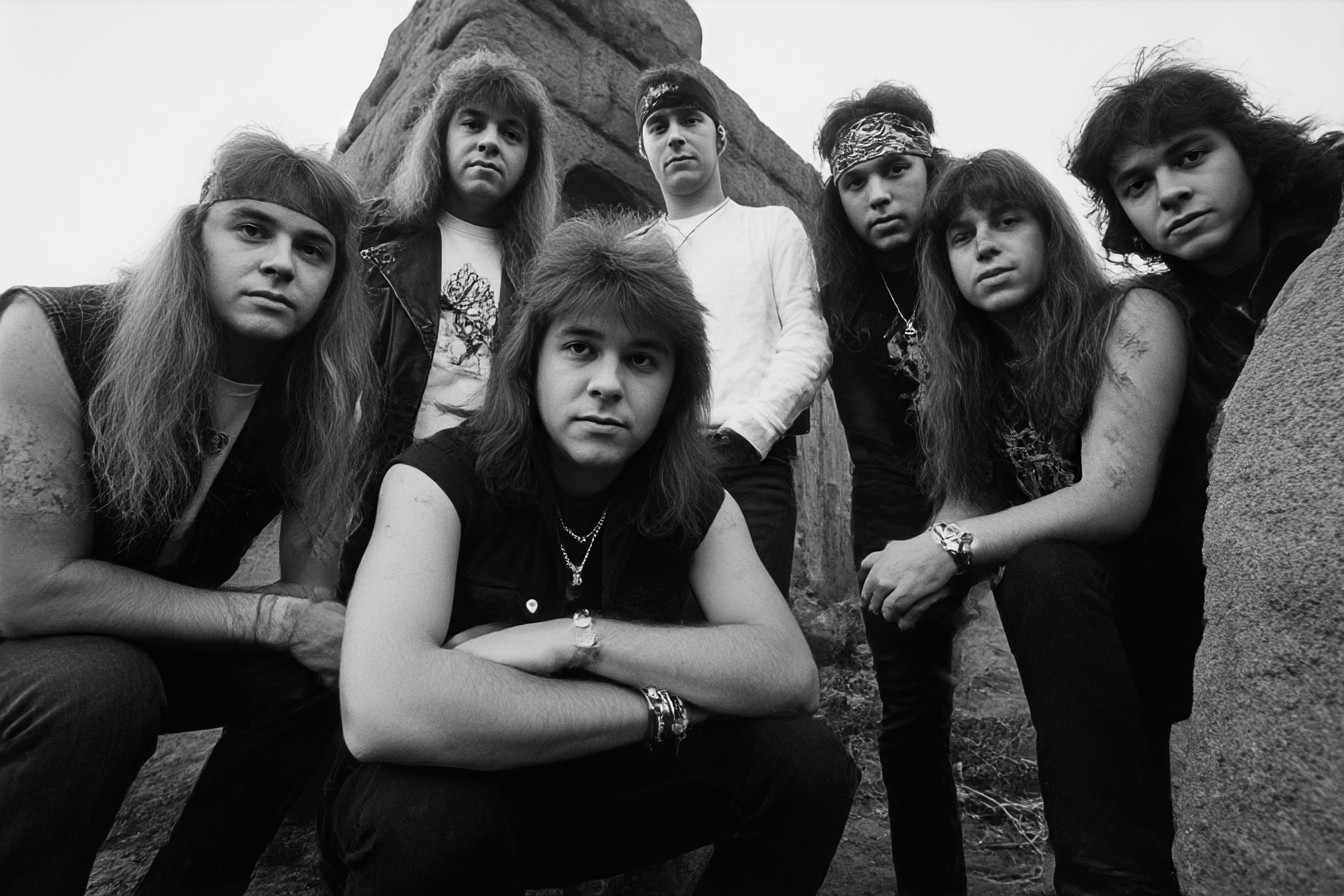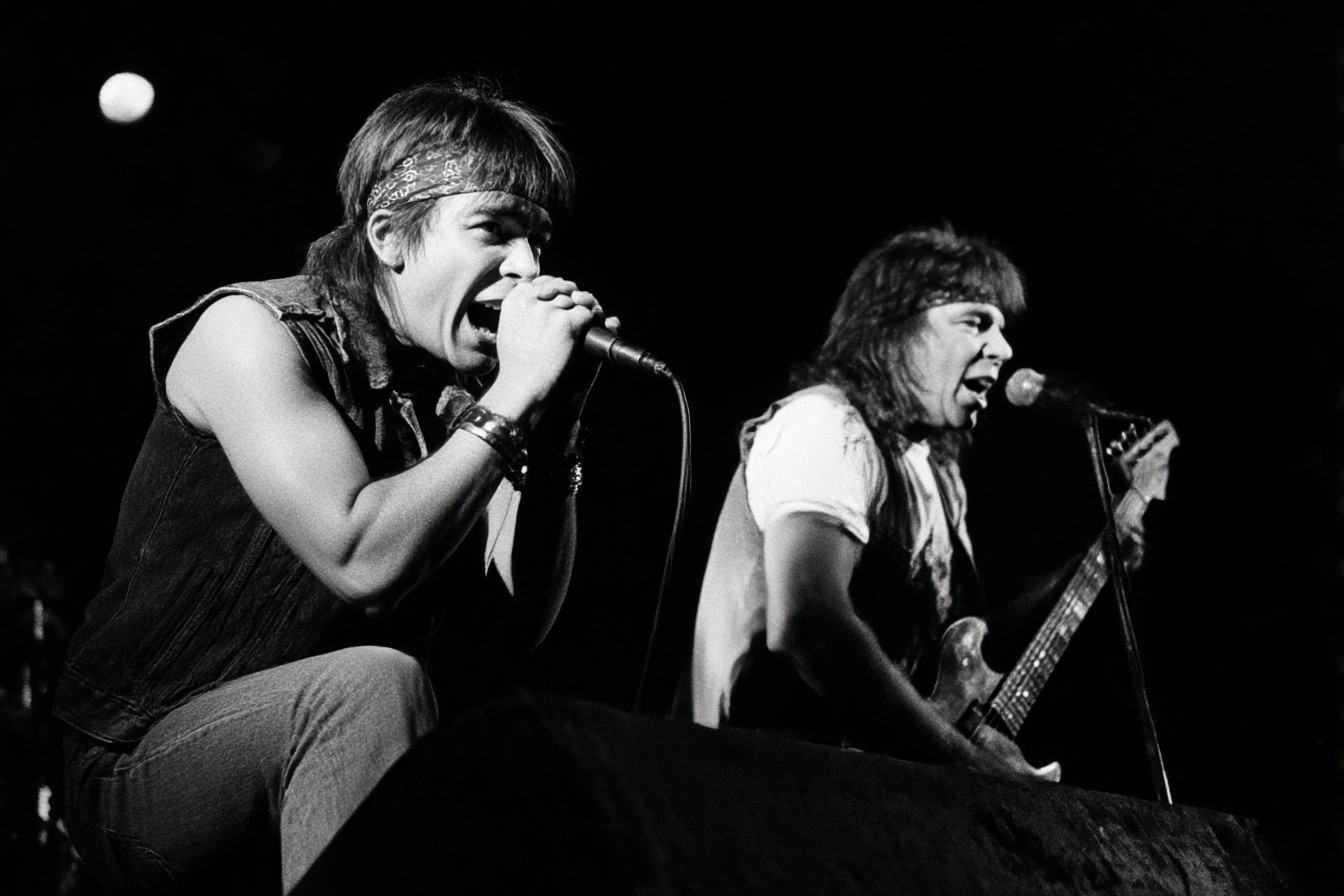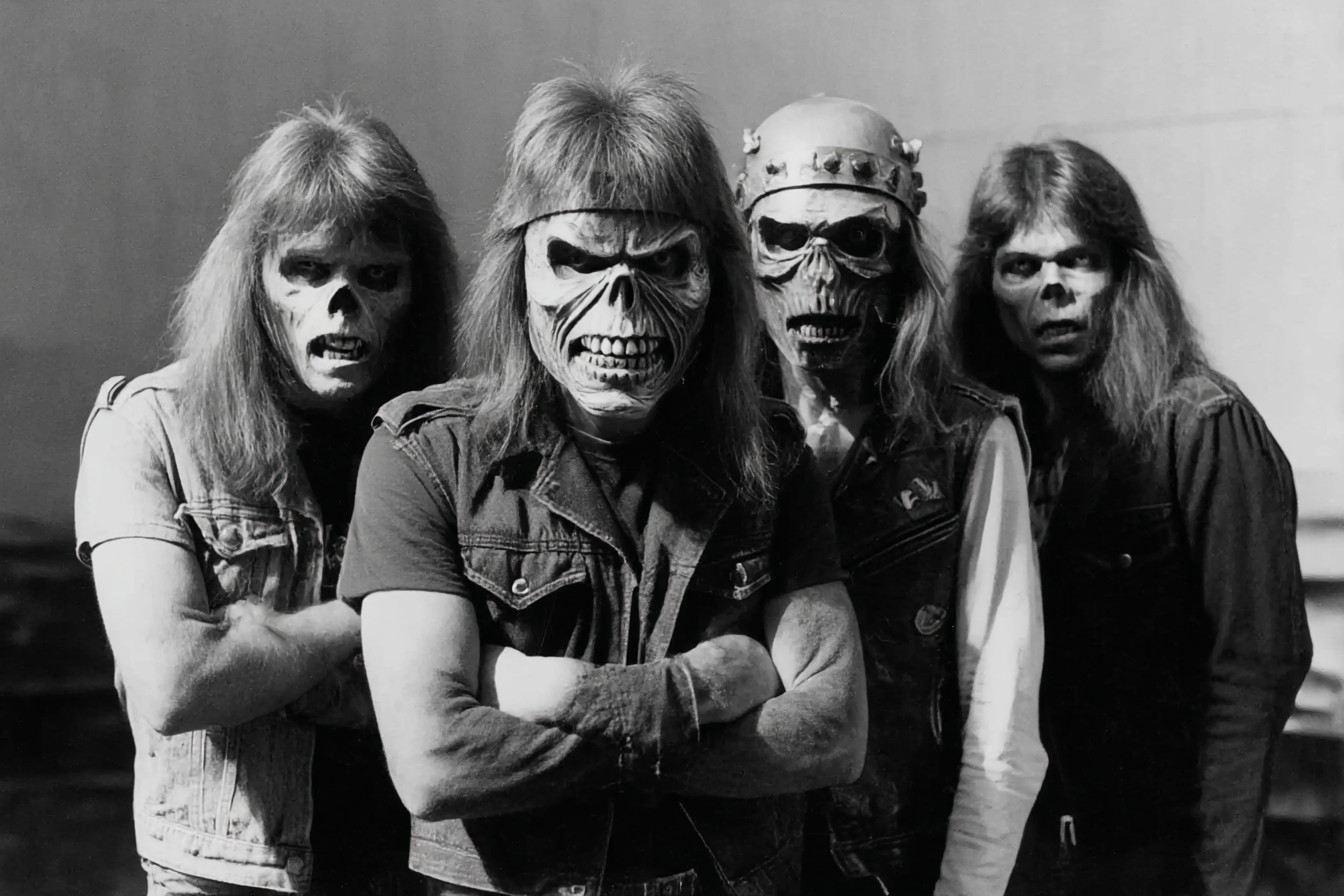The first time I heard Iron Maiden’s debut album, I was actually pissed off. Not because it was bad—quite the opposite—but because some jackass at my high school had been walking around in an Eddie t-shirt for months claiming to be Maiden’s biggest fan, and I’d nodded along assuming they were just another NWOBHM band I hadn’t gotten around to yet. Turns out, I’d been living in ignorance of what would become my musical north star for the next four decades. I mean, talk about a missed opportunity. Could’ve discovered them six months earlier if I wasn’t so busy pretending I already knew every metal band worth knowing. Pride makes fools of us all, especially teenage metalheads.
It was spring of 1987, and I was digging through the used bin at Sound Garden Records when I found it—that iconic cover with Eddie’s streetlamp-lit grimace staring back at me. Seven bucks later (which was exactly $2 more than I’d budgeted for record shopping that day, meaning I’d be walking the three miles home instead of taking the bus), I was clutching what I assumed was just another cool addition to my growing collection. I had no idea I was holding a piece of music that would still be part of my life when I had gray hair and reading glasses.
That first listen was… confusing, if I’m being honest. Where was the soaring operatic voice I’d heard when older kids played “Number of the Beast” or “Powerslave”? Who was this snarling punk-adjacent vocalist? And where were the sprawling epic compositions? This was lean, mean, and surprisingly direct. It sounded more like a pub band with unusually ambitious guitarists than the symphonic metal titans I’d been expecting. I almost felt cheated, like I’d picked up the wrong band’s record by mistake.
But then “Phantom of the Opera” kicked in around the middle of Side One, and I got it. I fucking got it. That track was the bridge between what they were and what they would become—a perfect snapshot of a band with one foot in the gritty London metal scene and the other already reaching for something grander. The instrumental section in that song still gives me goosebumps when I play it now, even on my stupidly expensive turntable that reveals every production limitation of that 1980 recording.
Paul Di’Anno’s voice is the thing most people fixate on when comparing early Maiden to the Bruce Dickinson era, and yeah, it’s the most obvious difference. But what fascinates me more is how the band was already structurally ambitious while working within a raw, almost primitive sound palette. Listen to “Strange World”—there’s a delicacy there that feels almost fragile compared to the rest of the album’s street-fighting energy. Even back then, these guys weren’t content to stay in one lane.
I’ve had this argument with fellow Maiden obsessives approximately 349 times (most recently last month at a bar after seeing a Maiden tribute band, where I nearly lost my voice trying to make this point over both the crowd noise and the alcohol): the debut isn’t a primitive version of what would come later; it’s its own fully realized thing. It’s not Iron Maiden failing to be the epic metal band they’d become—it’s Iron Maiden succeeding brilliantly at being a hungry, fierce band with something to prove.
The production—by Will Malone, who seemingly set up microphones in approximately the right direction and then went to lunch—is both the album’s limitation and its strength. You can practically smell the sweat and beer of those small club gigs where they honed these songs. There’s an urgency here that sometimes got lost in their more polished later work. Don’t get me wrong, I love the expansive sound they developed, but there’s something special about the way this album feels like it might go off the rails at any moment.
My original copy of the debut got played so much that by 1990, it sounded like someone was frying bacon in the background of every track. I’ve replaced it twice since then, most recently with that 2014 remaster that finally gave the bass some presence in the mix. My current copy lives in a special section of my vinyl shelves that I call the “Desert Island Dozen”—the records I’d grab first in a fire, the ones I know note for note, word for word.
“Running Free” was my gateway drug into this album. It’s the most immediate track, the one that grabs you by the throat from the first listen. But the album’s staying power comes from its deeper cuts. “Remember Tomorrow” reveals more with every listen, that quiet-loud dynamic showing an emotional range most of their contemporaries couldn’t touch. And “Transylvania” might be the most underrated instrumental in metal history—those galloping bass lines from Steve Harris were revolutionary. Nobody was playing bass like that in metal before him, and his influence still echoes through the genre forty-plus years later.
I took my nephew to his first Maiden show in 2018—the kid was 16 and had only ever known the later epic stuff. He’d listened to the debut a few times on my recommendation but didn’t really get it. “It’s too punk or something,” he said, which both made me feel ancient and oddly proud of his musical discernment. After the show (where they played “Iron Maiden” from the debut as part of the encore), he looked at me with new understanding. “I heard it,” he said. “That old stuff—it’s like the DNA of everything they did after.” Smart kid. Smarter than I was at his age.
The thing about this album that keeps me coming back—beyond nostalgia, beyond my completist tendencies, beyond my irritating habit of insisting that every band’s early work was their best (I’m working on this character flaw, I swear)—is its perfect capturing of potential energy. It’s like listening to a coiled spring. You can hear exactly what they are in that moment, but you can also hear everything they could become.
I’ve seen Maiden live 27 times now, starting with the Seventh Tour of a Seventh Tour in ’88 (yes, I missed the Di’Anno era entirely—I’m not THAT old, despite what my lower back tells me after concerts these days). Each time they play anything from the debut, there’s a rawness that cuts through even their most elaborate stage productions. “Prowler” still sounds dangerous. “Running Free” still feels like a jail break.
My most treasured piece of Maiden memorabilia isn’t my signed Piece of Mind LP or my backstage pass from the Fear of the Dark tour. It’s a beaten-up t-shirt from their 1980 British tour that I found at a vintage clothes shop in Camden when I was in London covering a festival for Riff Raider in ’95. The original owner had apparently worn it to death—it was faded, had cigarette burns, and smelled vaguely of beer despite multiple washings. But holding it was like touching a piece of history, a physical connection to those hungry early days captured on the debut. I paid £75 for it, which was about £74 more than I should have spent given my journalist’s salary, but some purchases transcend financial sense. I’ve never worn it—it’s framed on my wall next to a UK pressing of the album.
The debut album reminds me of something I try to keep in mind whenever I’m reviewing new bands: greatness rarely arrives fully formed. Sometimes it comes disguised as something rougher, simpler, and less polished than what we eventually recognize as a band’s definitive sound. Iron Maiden taught me to listen for potential as much as polish, for hunger as much as technique. That lesson has served me well through decades of watching bands evolve, falter, and sometimes surpass all expectations.
So here’s to Iron Maiden’s self-titled debut—not just the start of something that would become immense, but a brilliant snapshot of a moment when metal was still being defined, when the barriers between punk energy and metal ambition were more permeable, and when a group of East London lads laid the cornerstone of what would become one of metal’s most enduring empires. It wasn’t just the dawn—it was a perfect sunrise in its own right.



Leave a Reply